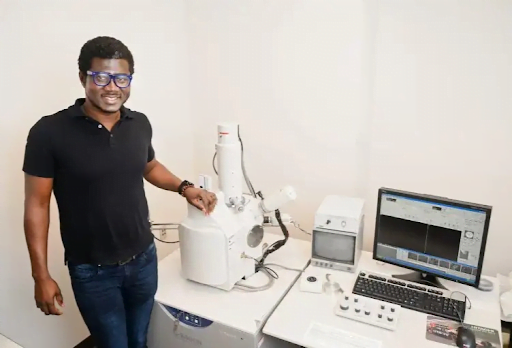By Camm Ashford
Dr. Michael Danquah and a team from the University of Tennessee at Chattanooga are researching methods that give instantaneous results on whether contaminants are present in food products.
The No. 1 goal is to make food safer for the public, but new testing methods also will save money for companies in the food-processing business, preventing expensive recalls on their products, Dr. Danquah said.
“This is actually going to fill a gap in the industrial operation and make the industry a better, more robust, more rapid, real-time way of assessing pathogens,” he noted.
Checking for impurities such as E. coli–which is one of the most common contaminants found in food–is required for companies in the food-processing business.
To make sure everything is in good shape, samples are taken routinely from production lines, then sent for testing at in-house labs or ones outside the plant. Currently, even with in-house labs, results can take a week. Time may stretch even longer for commercial labs.
The UTC team recently received a $600,000 grant from the National Science Foundation for research which will run for three years.
Dr. Danquah hopes the food-processing industries will be interested in his team’s findings.
“The beauty of having the industry involved is they can also help us to test the technology as we develop it,” he explained.
Dr. Danquah, associate dean in the UTC College of Engineering and Computer Science, is among the top 2 percent of research scientists in the world.
He uses biomolecular engineering principles to develop, among others–emerging biopharmaceuticals, methods for delivering drugs to their specific targets without alerting the body’s defense mechanisms, biofuels and systems that help clean up environmental pollution.
Dr. Danquah’s research findings have resulted in more than 300 peer-reviewed journal articles, scholarly book chapters, conference proceedings and presentations, and technical reports. He is a Fellow of the Royal Society of Chemistry and a Fellow of the Institution of Chemical Engineers.
One of Dr. Danquah’s goals is to advance cutting-edge bioengineering research at UTC. Working with others, the research can address the health care challenges of the 21st century, he said.

